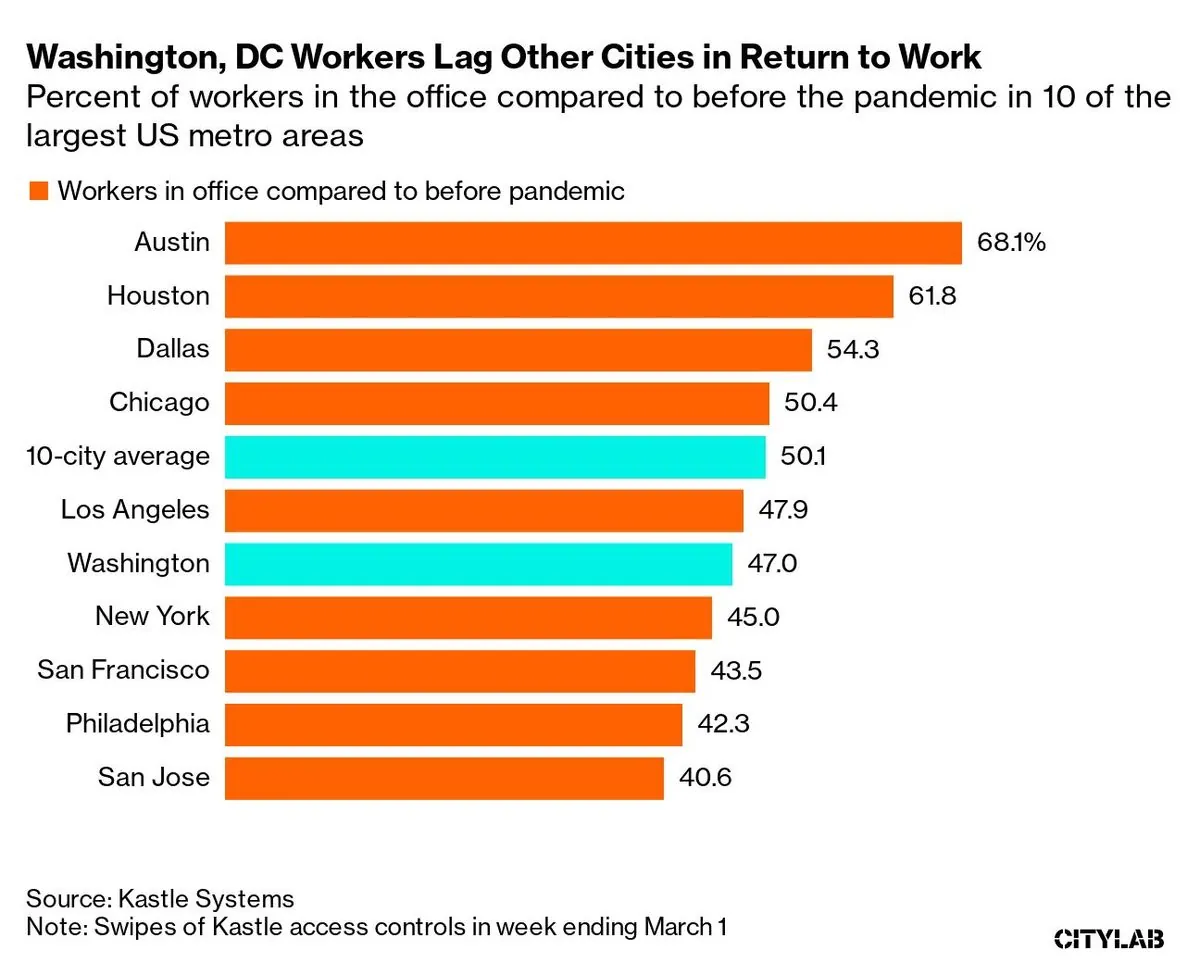Post-Labor Day Office Surge: D.C.'s Return-to-Work Trends Examined
D.C. sees largest post-pandemic office attendance spike after Labor Day 2024. Article explores reasons behind the surge, compares U.S. and European work cultures, and offers tips for easing back into work routines.

As the calendar turns to September 2024, the familiar post-Labor Day anxiety resurfaces for many professionals. This year, however, the traditional return-to-office (RTO) push appears more subdued, according to Forbes. Despite this, Washington D.C. experienced its most significant increase in office attendance since the pandemic's onset during the week of September 3-6, 2024.
Kastle Systems, a security firm, reported that D.C.'s office occupancy surpassed cities like San Francisco, San Jose, and Philadelphia, though it still lagged behind New York, Dallas, and Austin. This surge raises questions about the underlying motivations driving workers back to their desks.
Several factors may contribute to this trend:
- Job market concerns
- Desire for workplace socialization
- Political activity in the capital
- A sense of renewal akin to the back-to-school feeling

The concept of "la rentrée," a French term signifying a period of renewal and recommitment after summer, offers an interesting parallel. This tradition, deeply ingrained in European work culture, is gaining traction globally as societies reassess their relationship with work.
In the UK, Julia Hobsbawm, author of "Working Assumptions," notes that August has become akin to the Christmas break, with extended vacations becoming more culturally acceptable. This shift, coupled with new flexible working rules implemented in 2024 and potential right-to-disconnect laws, suggests a growing emphasis on work-life balance.
The U.S. appears to be inching towards similar practices, with some companies offering extended company-wide shutdowns around major holidays like Independence Day. This trend may be influencing end-of-summer mindsets and workplace dynamics.
For those struggling to readjust, consider these tips:
- Plan small rewards for completing tasks
- Schedule a random weekday off
- Arrange after-work meetups with colleagues
- Start planning your next getaway
"the new notebook, sharpened pencil feel of early September"
It's crucial to remember that while some enjoyed leisure time, others spent Labor Day weekend advocating for workers' rights. Notably, 10,000 hotel workers across the U.S. went on strike, demanding better pay and improved staffing in light of increased workloads following pandemic-era cuts.
As we navigate this transitional period, it's worth reflecting on how our work habits and expectations have evolved. Whether you're embracing the office return or seeking a better work-life balance, the post-Labor Day period offers an opportunity for renewal and reassessment in our professional lives.


































